The International Ocean Discovery Programme (IODP) gathers scientists from many different countries to work together on geological marine research involving nautical expeditions. On March 22, a group of Year 9 and Year 11 geography and biology students from the Pao School Songjiang Campus were brought into the programme through the ‘Our Ocean’ science activities series, organized by the Documentary Centre of SMG and the School of Ocean and Earth Sciences at Tongji University. The initiative enabled students to connect online with two Chinese scientists currently participating in IODP mission 402, at sea in the Mediterranean.
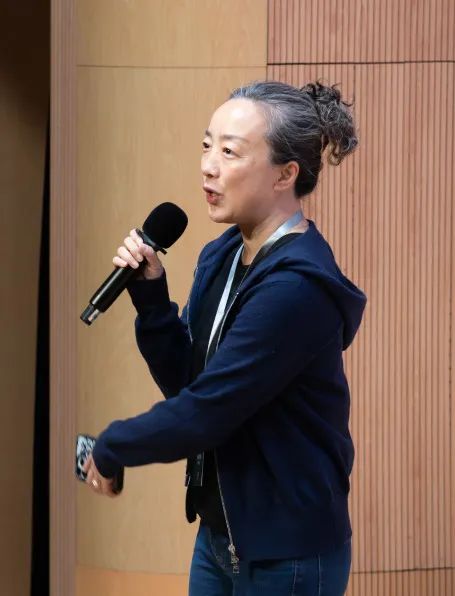
Documentary Centre of SMG, Guo Jing
Tongji Associate Professor Xun Yu introduced the Pao students to the IODP and explained in particular the objectives of IODP 402, currently at work within the Tyrrhenian Sea, in the Mediterranean region, aboard the USS Determination. Two Chinese scientists on board the research ship, as part of the IODP 402 expedition, were invited to explain it in greated detail. They are part of a 29-member international science team, with specializations ranging from geophysics, sedimentology, paleontology, and paleomagnetism, to petrology, geochemistry, and tectonics.
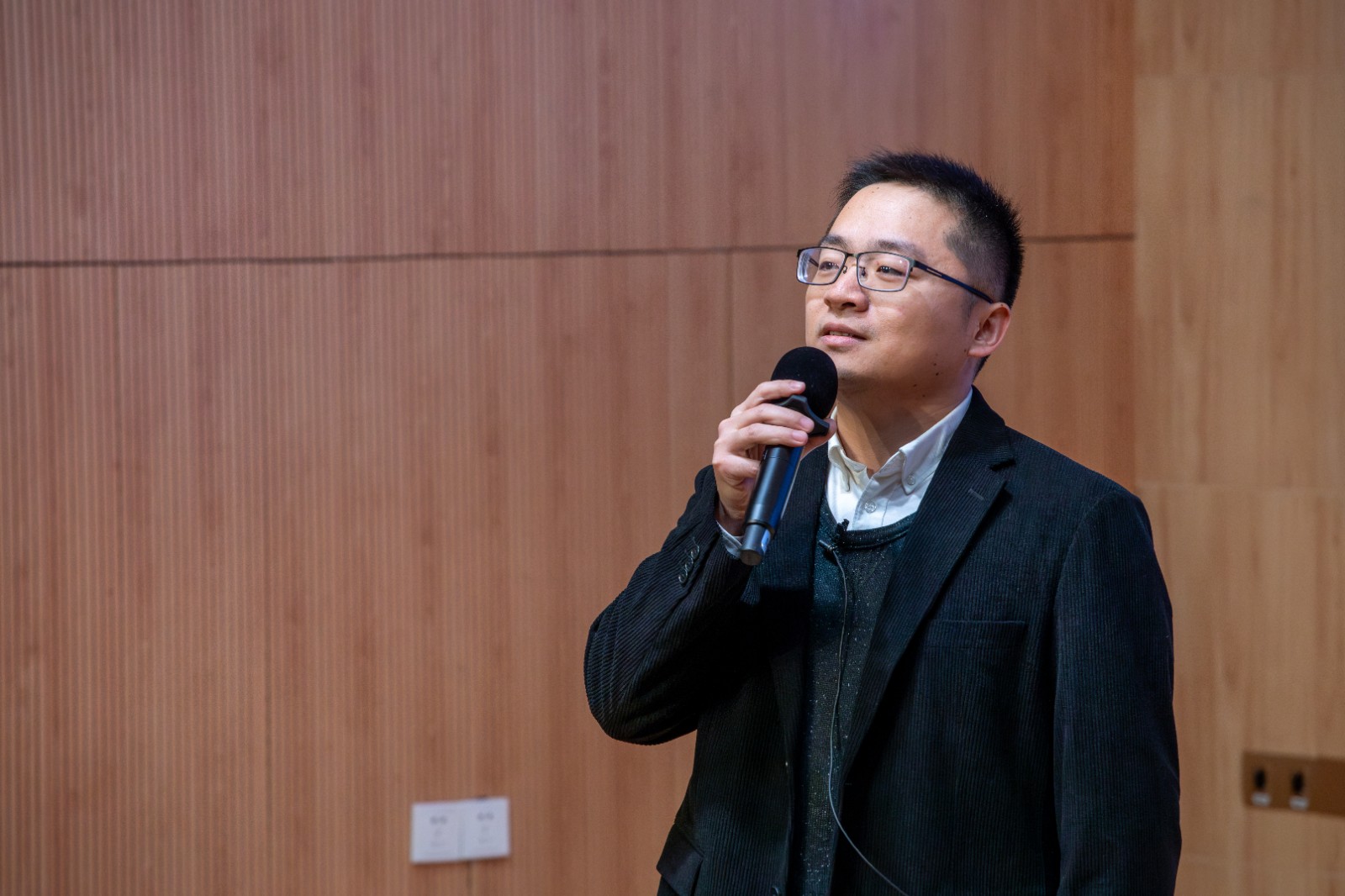
Associate Professor Xun Yu from the School of Ocean and Earth Sciences at Tongji University
Professor Lei Chao from the School of Oceanography at China University of Geosciences (Wuhan) is engaged in research on tectonic geology and petrology, while Associate Professor Zhao Xiangyu from the School of Oceanography at Shanghai Jiao Tong University is dedicated to paleomagnetism research. They took turns to describe life and work aboard the research ship, on its mission to investigate the ‘Tyrrhenian Continent–Ocean Transition’, a geological phenomenon recorded in rocks beneath the sea floor. Exploring the phenomenon involves drilling down to a depth roughly three kilometers below the surface of the sea, beneath ocean water, down through sedimentary layers, and into the underlying hard basement rock, known as the ‘rock core’, which is the ultimate target of the scientists' interest.
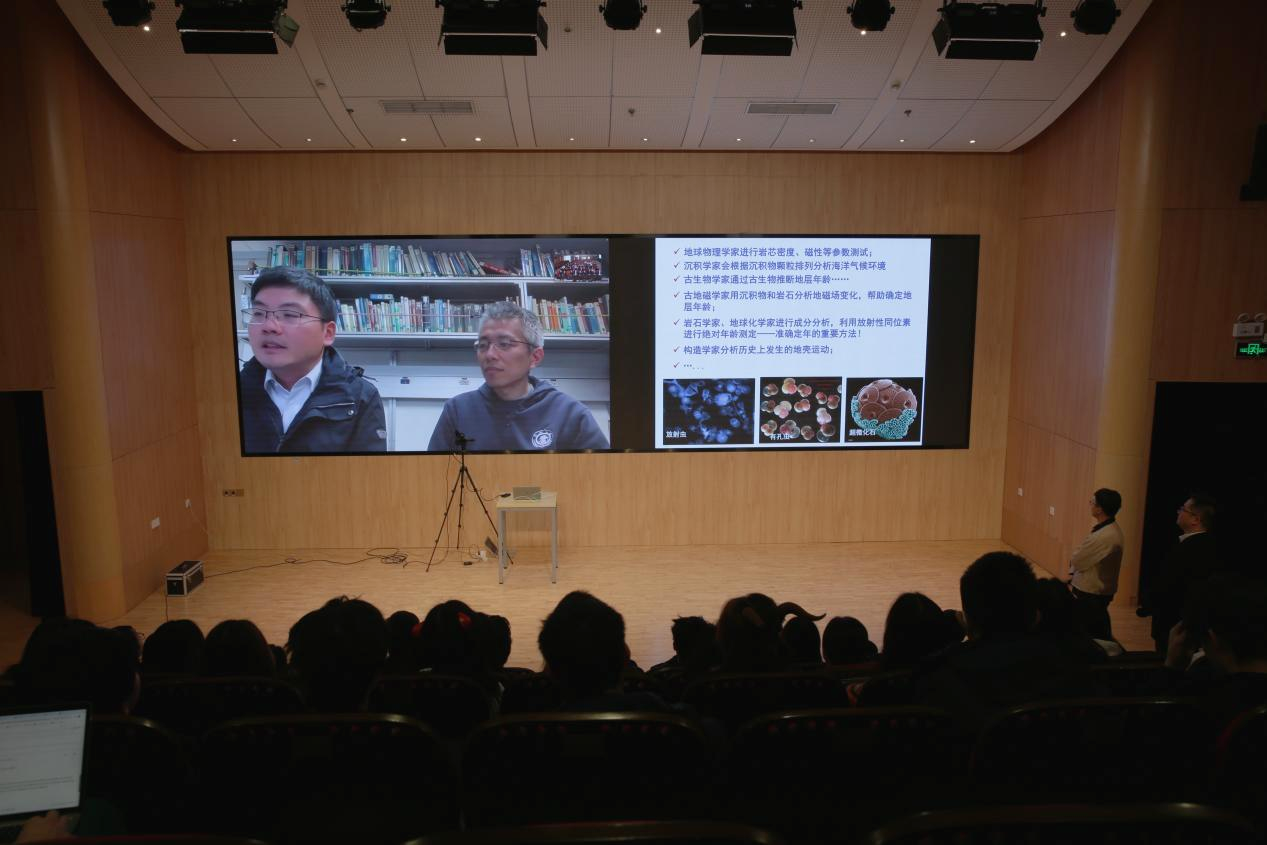
Professor Lei Chao from the School of Oceanography at China University of Geosciences and Associate Professor Zhao Xiangyu from Shanghai Jiao Tong University
Students learnt about seabed drilling procedures, and how scientists split, measure, process, study, and archive the collected cores. They were then able to virtually explore the drilling platform, core processing room, and laboratory, while interacting with scientists aboard the ship to deepen their understanding of the research expedition.
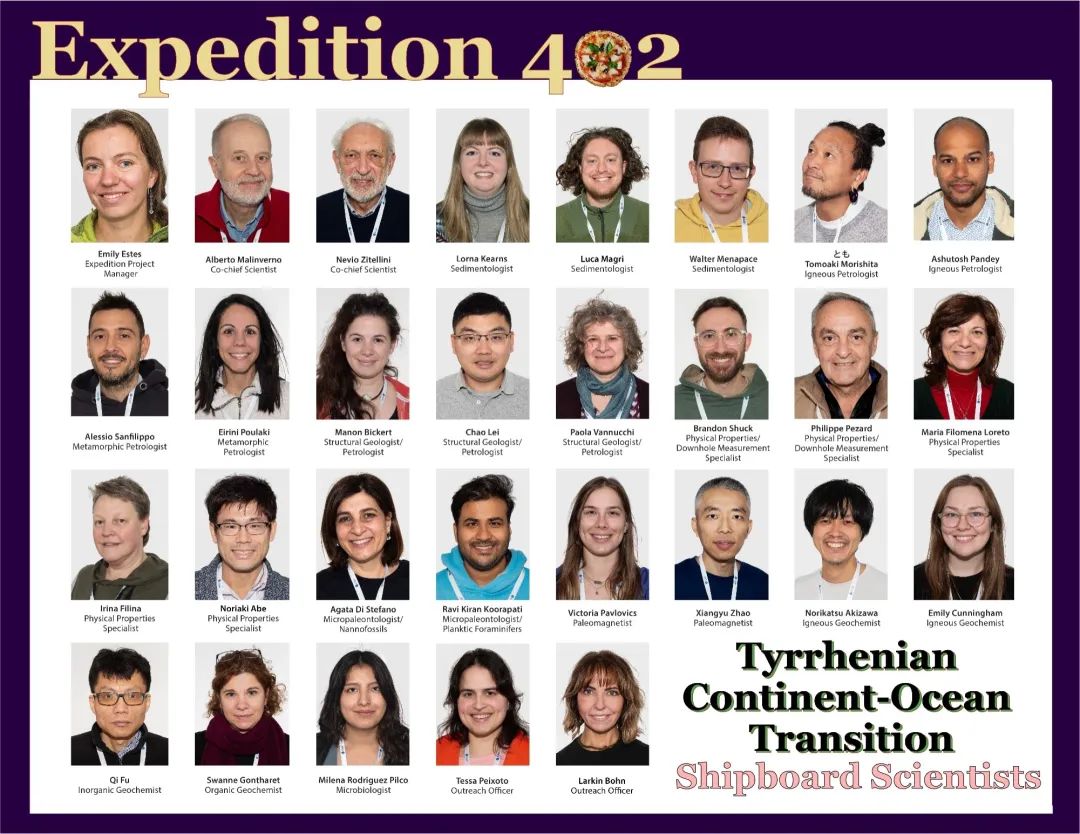
IODP402 Shipboard Scientists
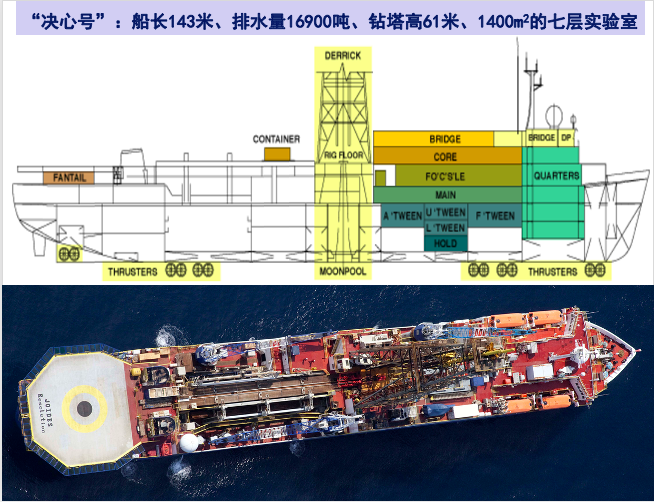
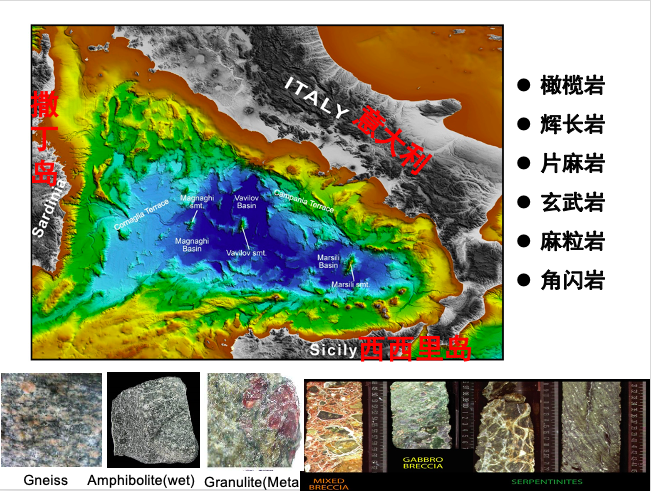
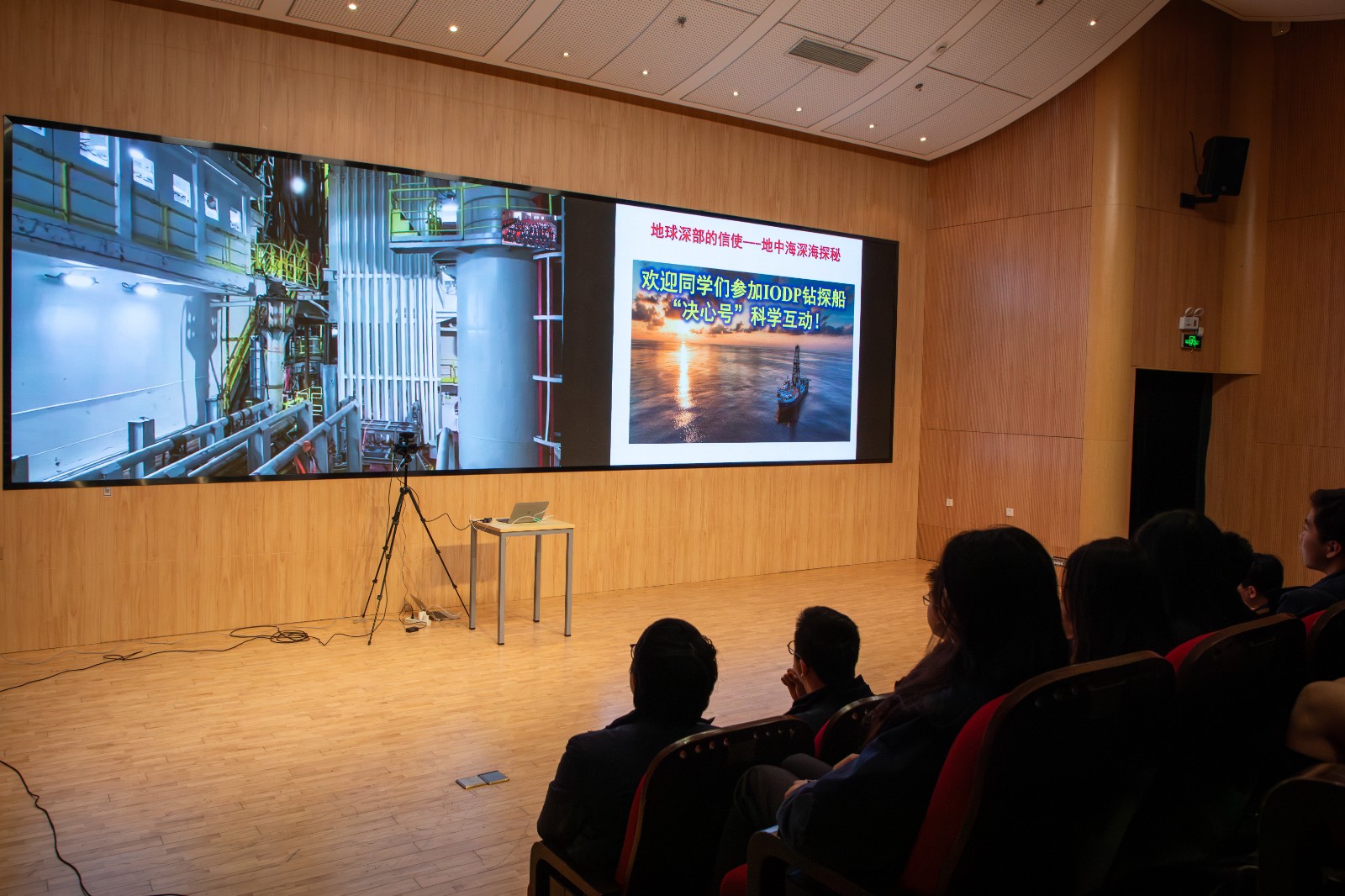
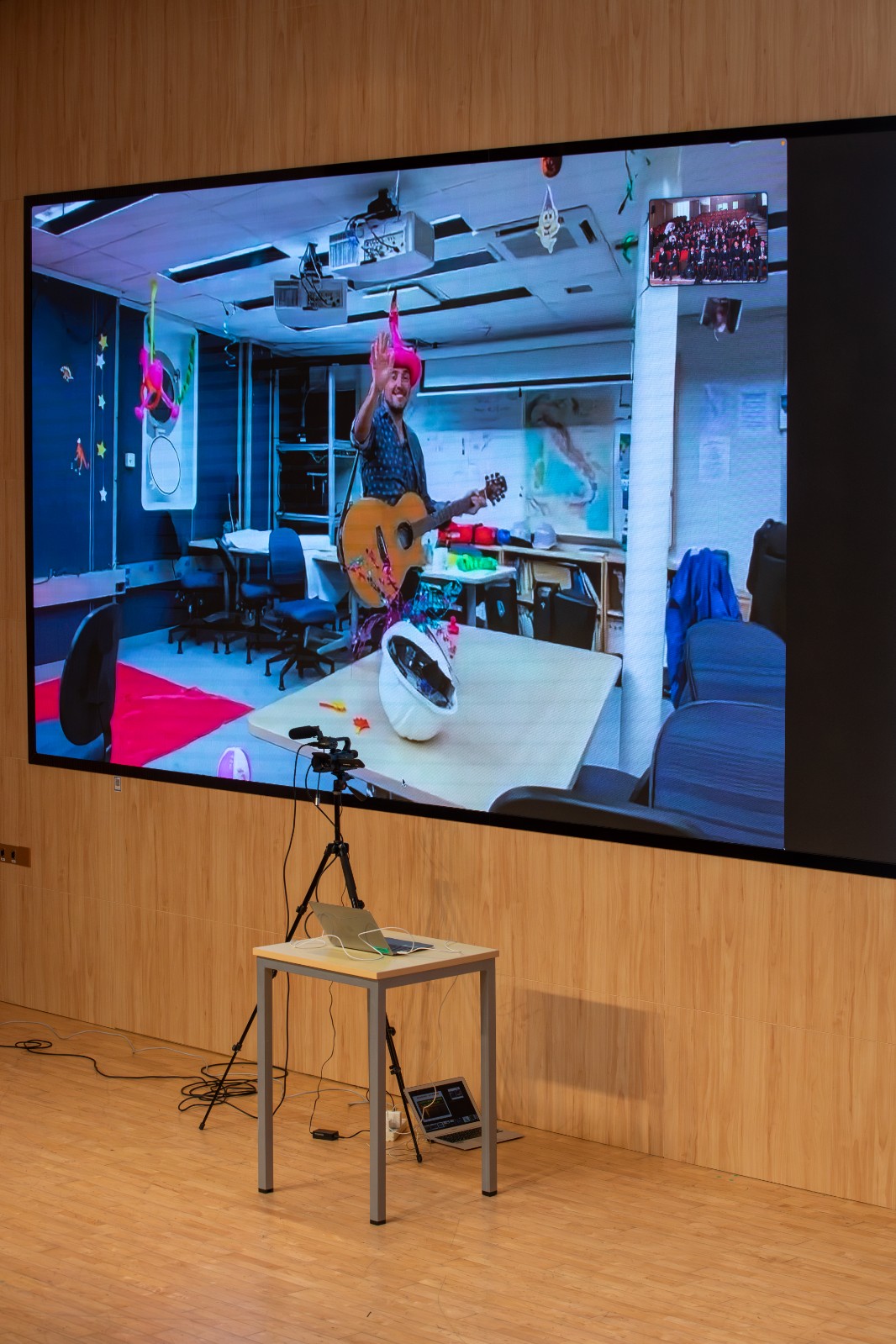
Student Q&A and feedback
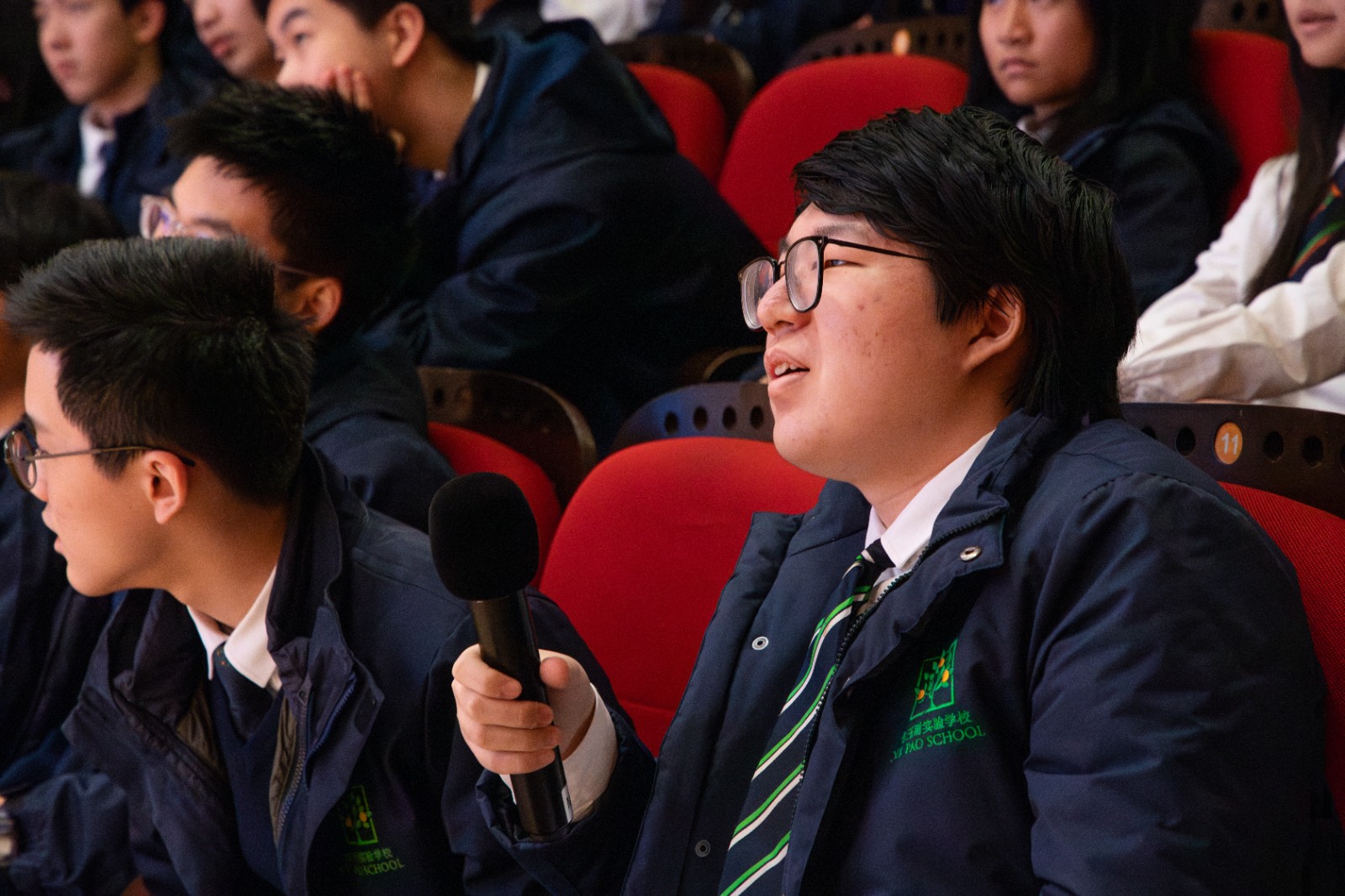
Y11 Jackey Lu
I am a geology and paleontology enthusiast, so this opportunity to learn about science was truly invaluable. The livesteam featured insightful explanations by scholars, engaging Q&A sessions, and the fascinating analysis of mineral samples at the drilling site. It provided a wonderful platform for me to enhance my professional knowledge, especially after recently participating in the geology Olympiad.
The interactive Q&A session not only showcased the scientists' expertise but also revealed their engaging personalities. We were regaled with anecdotes, such as an amusing tale about a turtle on the ship, the challenges they faced, and even their opinions on pineapple as a pizza topping. Exploring the research vessel from diverse angles, including its operational aspects and the daily life onboard, deepened my appreciation for marine geological research and enhanced the value of my own research experiences.
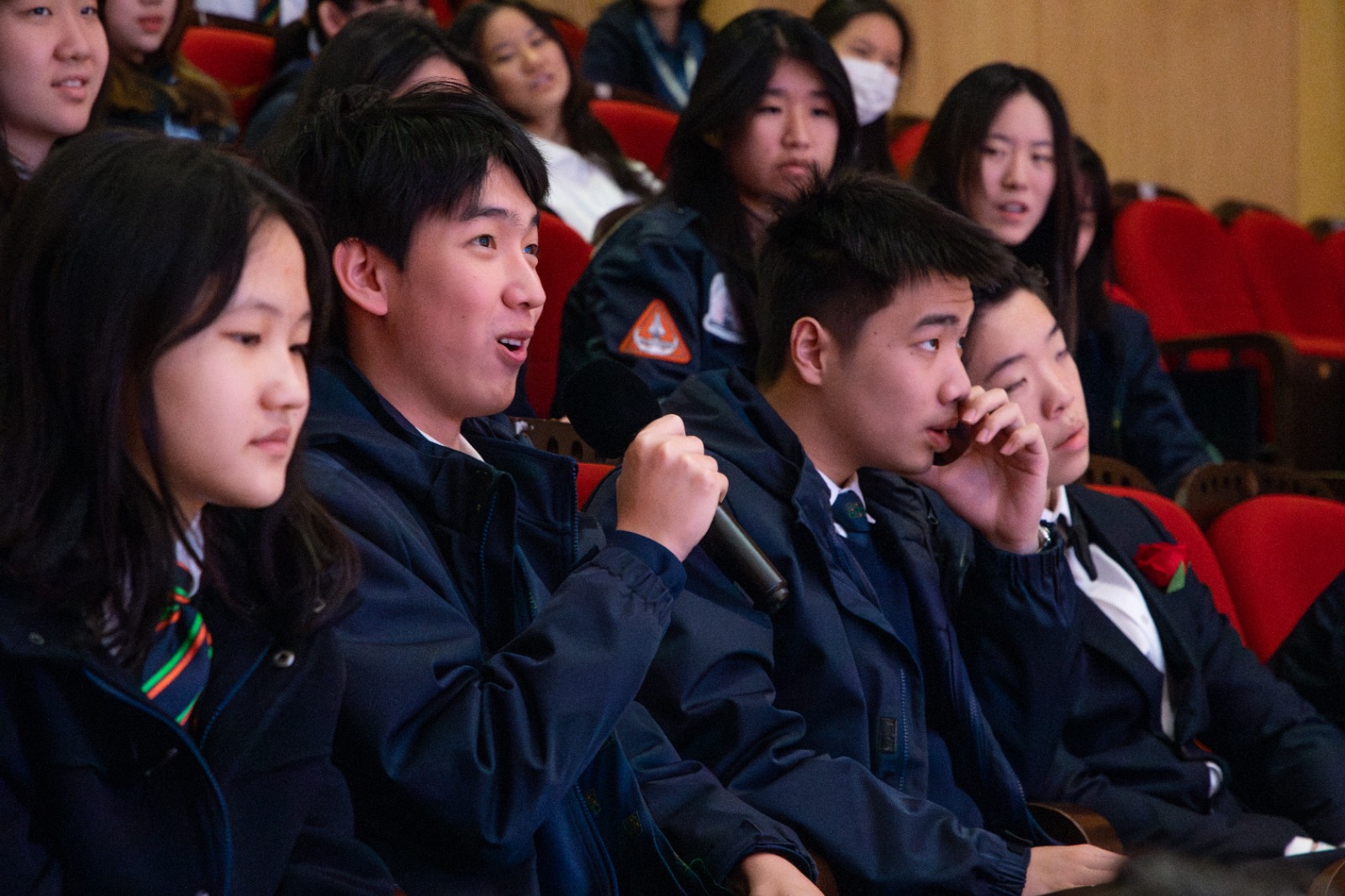
Y11 Max Wang
As a student who had the privilege of participating in a short oceanographic expedition in the past, the recent sharing session resonated deeply with me. During the session, scientists from different countries personally elucidated the use of various pieces of equipment, as well as sharing insights into their research work at sea. This experience evoked a sense of familiarity while immersing me in the moment, expanding my perspective significantly.
The interactive Q&A session not only showcased the scientists' expertise but also revealed their engaging personalities. We were regaled with anecdotes, such as an amusing tale about a turtle on the ship, the challenges they faced, and even their opinions on pineapple as a pizza topping. Exploring the research vessel from diverse angles, including its operational aspects and the daily life onboard, deepened my appreciation for marine geological research and enhanced the value of my own research experiences.
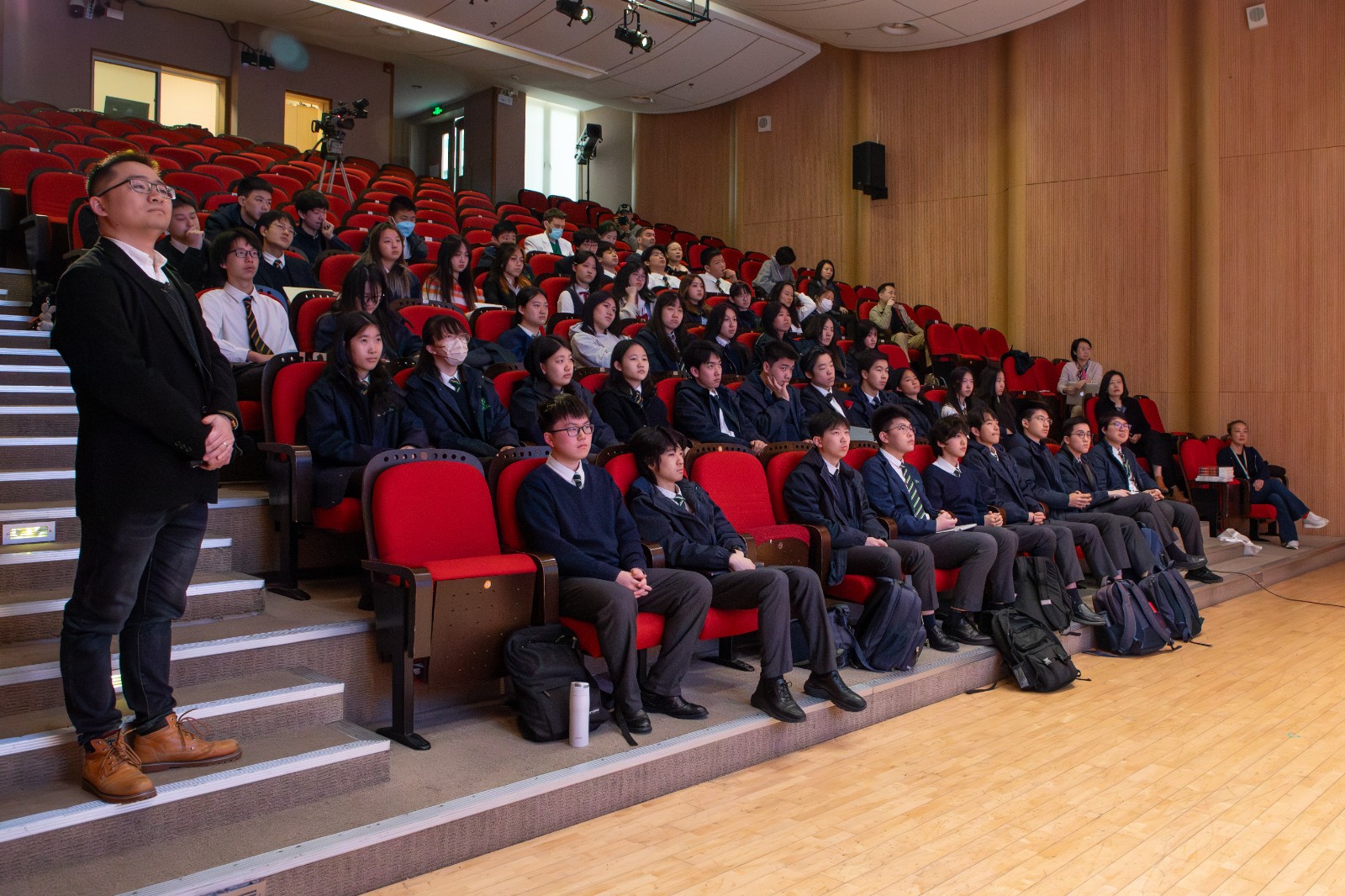
At the conclusion of the event, Professor Xun Yu shared the exciting news that, at the end of last year, China's independently designed and constructed ultra-deepwater ocean drilling ship, named ‘Dream’, had successfully concluded its maiden trip. The completion of this vessel equips China with the capability to conduct its own expeditions, placing it on par with the United States, Japan, and Europe. This development elevates China's role in international ocean drilling efforts from ‘participant’ to ‘key player’.
International Ocean Discovery Programme (IODP)
The International Ocean Discovery Program (IODP) is an international research collaboration that coordinates seagoing expeditions to study the history of the Earth, as recorded in sediments and rocks beneath the ocean floor. IODP represent the world's largest, longest-running, and most successful international Earth science collaboration. Over the past 50 years, its programs have been playing a critically important role in Earth science research and have revolutionized our view of Earth history and global processes through ocean basin exploration.
China officially joined the ODP in 1998, as its first associate member. On February 6, 2004, the MOST established the IODP-China Scientific Committee, and the IODP-China Office, which was located at Tongji University. In recent years, China's IODP has been actively working towards becoming the fourth international platform provider for IODP. It is already independently organizing IODP expeditions, and is building and managing the IODP's fourth core sample bank.